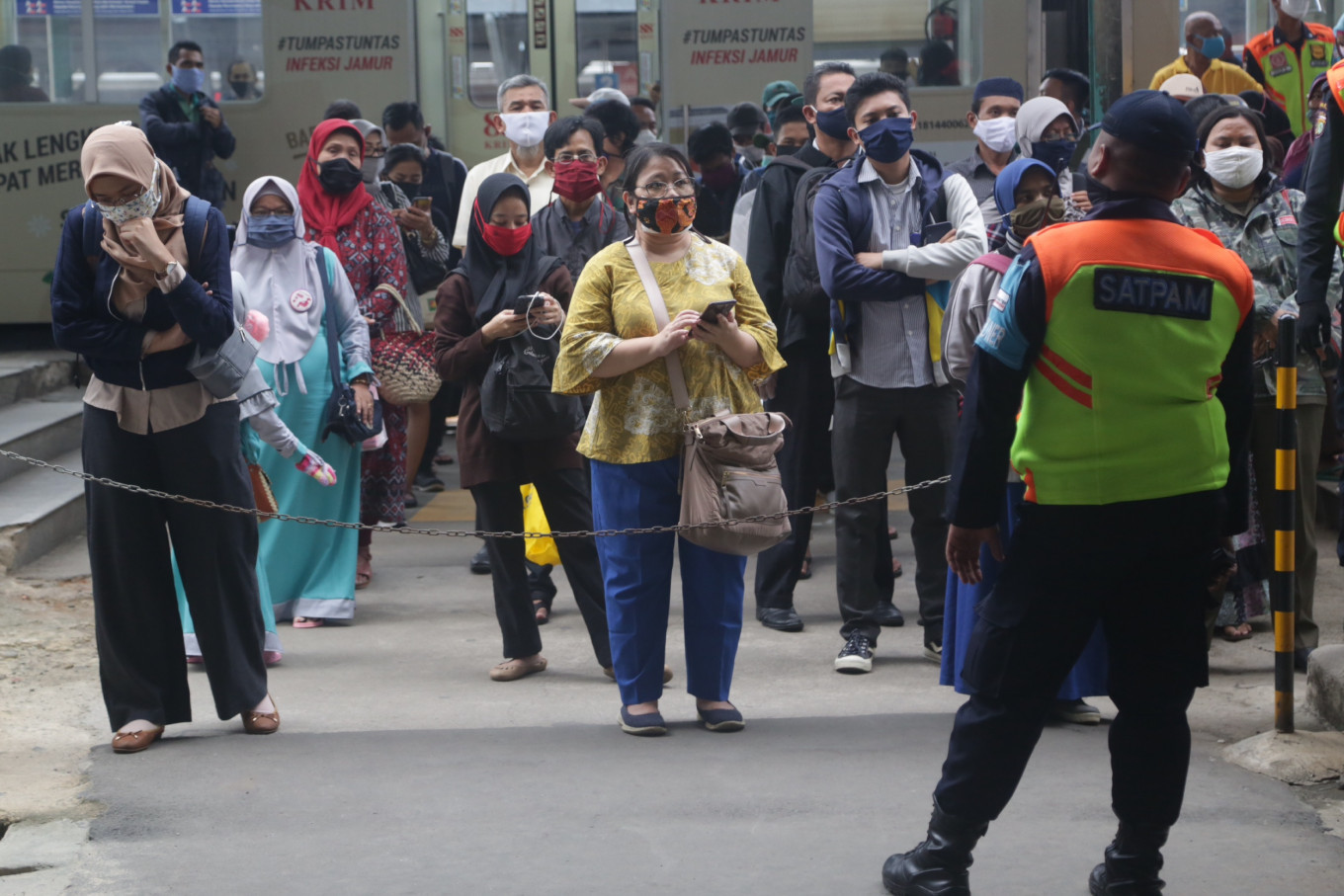Popular Reads
Top Results
Can't find what you're looking for?
View all search resultsPopular Reads
Top Results
Can't find what you're looking for?
View all search resultsBusiness groups embrace 'new normal'. Epidemiologists skeptical
Change text size
Gift Premium Articles
to Anyone
B
usiness groups have welcomed the Health Ministry’s new workplace health guidelines, but epidemiologists have raised doubts.
Agung Pambudi, the Executive Director of the Indonesian Employers Association (Apindo) said the guidelines, which were issued on Saturday and aim to usher in a so-called “new normal”, could help mitigate the economic impacts of the COVID-19 pandemic.
"It's the best way to mitigate the COVID-19 pandemic while still maintaining work productivity," Agung said as quoted by kompas.com.
Tri Yunis Miko Wahyono, an epidemiologist from the University of Indonesia, Depok, criticized the Health Ministry’s guidelines for not having detailed criteria for the implementation of policies.
"The government needs to make clear and strict criteria. It would be a mistake to implement the guidelines in Jakarta or any other area that is still seeing a lot of new cases," he said.
A ministerial decree issued on Saturday by Health Minister Terawan Agus Putranto outlined how offices and factories should operate during and after large-scale social restrictions (PSBB).
"It’s impossible to impose restrictions on workplaces forever. We should keep the wheels of our economy turning,” Terawan said in a statement on the Health Ministry’s official website. “That’s why workplaces must prepare to adapt to changes amid the COVID-19 situation, also known as the new normal.”
The ministerial decree requires the management of companies to create task forces to curb the spread of the disease.
The policies also set requirements for businesses to be allowed to reopen. These include ensuring sufficient hand washing facilities, checking employees’ temperatures, requiring employees to wear masks, keeping one meter of distance between employees at work, minimizing physical interaction with customers and preventing the formation of crowds.
Companies have also been advised to set aside a time for employees to exercise together — while adhering to physical distancing guidelines — before work starts.
Read also: Indonesia says only regions with zero, declining cases can brace for 'new normal'
The decree advises workplaces to do away with late-night shifts or to only assign such shifts to workers under the age of 50.
Yunis said it would be ill-advised to implement the guidelines in areas with high transmission rates, especially the capital.
"Jakarta should relax [restrictions] only if it sees zero new cases for two weeks and those who are infected are well-isolated," Yunis said.
Jakarta governor Anies Baswedan has announced that the “new normal” date is not set in stone. Jakarta’s PSBB is set to end on June 4, but could be extended.
"If the transmission rate is declining, the number of new cases is dropping and the virus reproduction level drops to below 1, [we can ease restrictions]," Anies said.
"However, if the number of new cases is rising because Jakartans are going out without masks on or forgetting to wash their hands frequently, there's a possibility that PSBB will be extended."
The basic reproduction number, also known as R0, refers to the number of people, on average, a single infected person will directly infect in a population.
Yunis said using R0 alone as a measure of whether to relax PSBB was not quite correct.
"If R0 is one, but the new cases are still at 100 per day, it will be dangerous [to ease restrictions]. Jakarta is still seeing a lot of new cases, so please don't use an incorrect indicator," Yunis said.
Jakarta, the country’s COVID-19 epicenter, reported 137 new cases on Wednesday, bringing the total number of infected residents in the capital city to 6,826 people out of the national 23,851. (nal)









